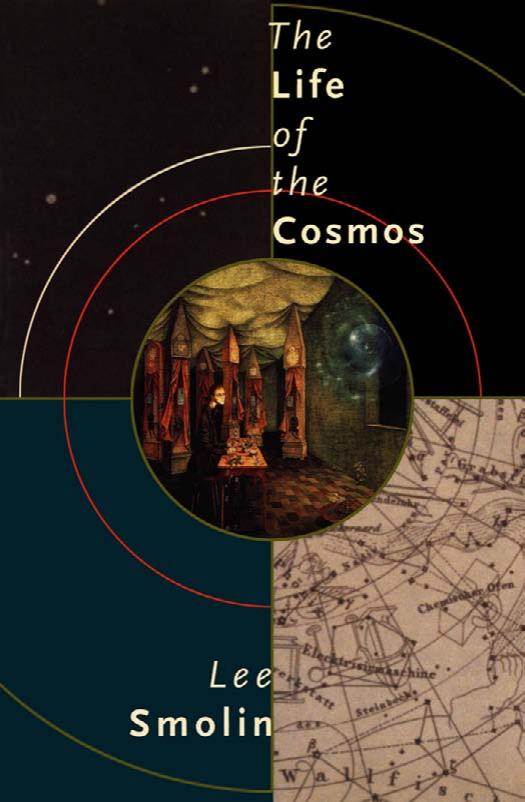The Life of the Cosmos by Lee Smolin

Author:Lee Smolin [Smolin, Lee]
Language: eng
Format: mobi, epub, pdf
Publisher: Oxford University Press
Published: 1999-03-04T00:00:00+00:00
FOURTEEN
PHILOSOPHY, RELIGION, and COSMOLOGY
The fundamental question of philosophy is thus precisely:
What is given to us?
âStanley Rosen
The main problem philosophy faces at the present time is
how to have knowledge without faith .
âPaola Brancaleoni
S ince at least the seventeenth century, the writings of Western philosophers and scientists have rung with the ambition to have complete knowledge about the world. We see in the writings of physicists from Copernicus and Newton to Maxwell and Einstein the faith that the world is constructed on a rational basis, and that it is possible for human beings to represent this rationality in comprehensible language. And in the ambitions of the great philosophical system-makers, from Descartes and Leibniz to Kant and Hegel, we see the ambition to discover, from an exercise in pure thought, the whole meaning and shape of the world, at least as it is perceivable by us.
In the writings of most of these scientists and philosophers, we find also the belief that the world is rational and explicable because both it and our minds were made by a rational God. The ambition to comprehend the world is then the ambition to mentally take the place of God and see the world from the outside, as its creator did. For some, such as Newton, the religious underpinnings to the search for scientific knowledge are explicit, even celebrated. But even in Einstein, who denies belief in such an anthropomorphic god, one sees in so many writings and remarks his yearning to know the secrets of âthe old one.â And, indeed, in his autobiographical notes, one reads of a lonely adolescent who, after a profound disillusionment with religion, discovered in science a search for transcendence and identification with the absolute more acceptable to a young secular European of the Nineteenth-century fin de siècle.
It was indeed this promise of transcendence that I found in Einsteinâs writings that first captured me for physics. And, having started with a master and not with a textbook, I began reading the original writings of those who had invented the science I was struggling to make mine. Of course, to get anything out of the old books, with no background in general history, let alone the history of science, it was necessary to learn to skim, to read selectively, to take in what meant something to me and leave the rest uncomprehended.
As a secular child of a much different period, with more Marxism and mysticism in my upbringing than religion, I skipped over the references to God in the writings of Newton, Copernicus, Kepler, Descartes, and Einstein. Only later, preparing to teach about them, did I reread these founders and discover how much their search for truth was a search for God.
The references to God in the founders of my science made no sense; they seemed so quaint, so unnecessary. Can there be any doubt that science is a better road to truth about nature than any received dogma? But, if this is so clear to us now, when we live amidst a
Download
The Life of the Cosmos by Lee Smolin.epub
The Life of the Cosmos by Lee Smolin.pdf
This site does not store any files on its server. We only index and link to content provided by other sites. Please contact the content providers to delete copyright contents if any and email us, we'll remove relevant links or contents immediately.
| Aeronautics & Astronautics | Astronomy |
| Astrophysics & Space Science | Comets, Meteors & Asteroids |
| Cosmology | Mars |
| Solar System | Star-Gazing |
| Telescopes | UFOs |
Tools of Titans by Timothy Ferriss(8346)
Turbulence by E. J. Noyes(8001)
Secrets of Antigravity Propulsion: Tesla, UFOs, and Classified Aerospace Technology by Ph.D. Paul A. Laviolette(5356)
Astrophysics for People in a Hurry by Neil DeGrasse Tyson(5168)
Room 212 by Kate Stewart(5089)
Design of Trajectory Optimization Approach for Space Maneuver Vehicle Skip Entry Problems by Runqi Chai & Al Savvaris & Antonios Tsourdos & Senchun Chai(5052)
Pale Blue Dot by Carl Sagan(4981)
The David Icke Guide to the Global Conspiracy (and how to end it) by David Icke(4682)
A Journey Through Divination and Astronomy by Publishing Pottermore(4369)
Goodbye Paradise(3790)
Apollo 8 by Jeffrey Kluger(3688)
COSMOS by Carl Sagan(3602)
The Five People You Meet in Heaven by Mitch Albom(3544)
Losing the Nobel Prize by Brian Keating(3526)
How to Read Water: Clues and Patterns from Puddles to the Sea (Natural Navigation) by Tristan Gooley(3443)
Brief Answers to the Big Questions by Stephen Hawking(3408)
How to Read Nature by Tristan Gooley(3313)
The Order of Time by Carlo Rovelli(3173)
A Brief History of Time by Stephen Hawking(3007)
